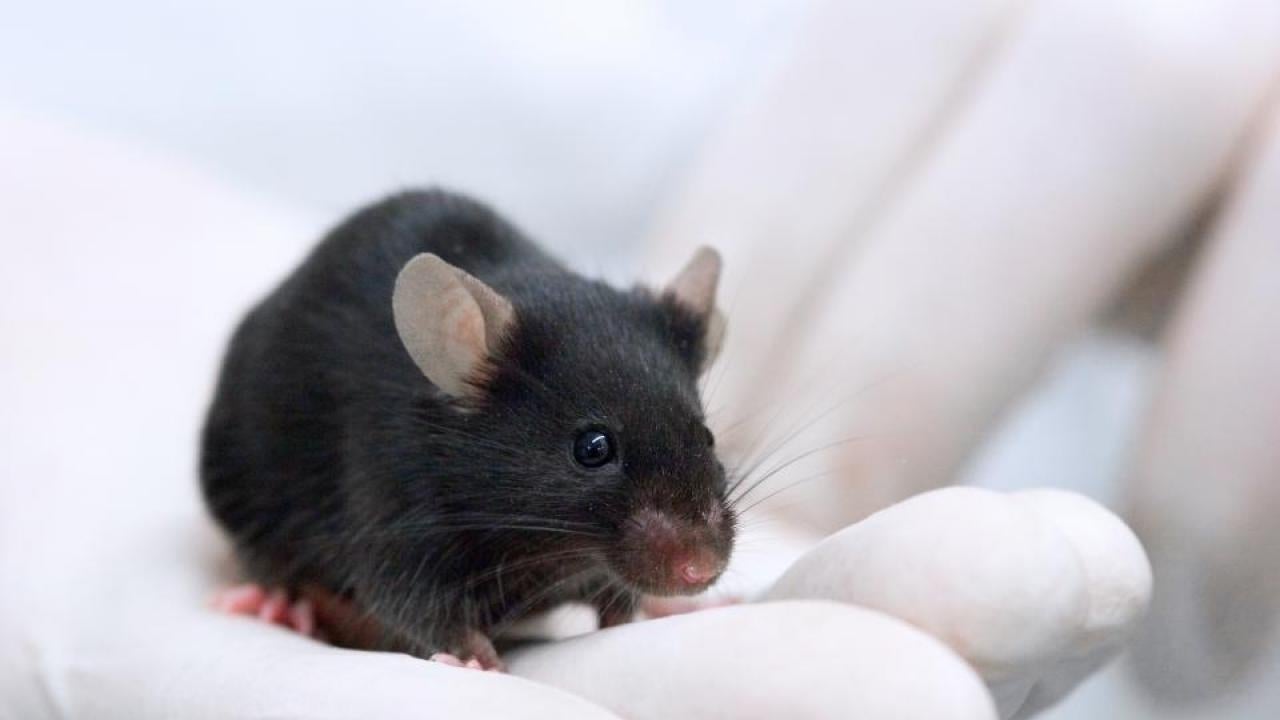The National Institutes of Health has renewed its grant to support the Mutant Mouse Resource and Research Center at the University of California, Davis. This is the 26th year of operation for the MMRRC and the fifth consecutive competitive renewal of the grant, now $7.2 million in total costs over the next five years.
The MMRRC is one of four individual centers in a national consortium that also includes an Informatics, Customer Service, and Coordination (ICSC) Center, also located at UC Davis. The consortium serves as the United States’ premier public mutant mouse repository system, providing genetically altered mouse models of human disease for hundreds of biomedical researchers annually all over the world. These mice are used to study a wide range of human diseases, from cancer and heart disease to aging.
The UC Davis center is a founding member and the largest center of the consortium and holds and distributes more than 55,000 mutant alleles for thousands of genes in the mouse genome. The MMRRC-UCD also contributes the outcomes of its resource-related research to improve and enhance cryopreservation, gene targeting, microbiome analysis, in vivo phenotyping and other areas of mutant mouse biology.
